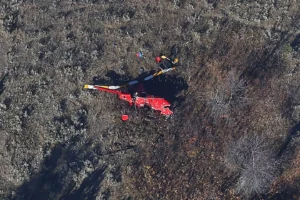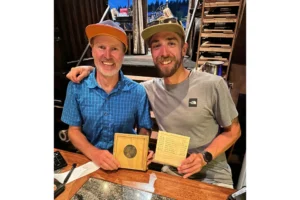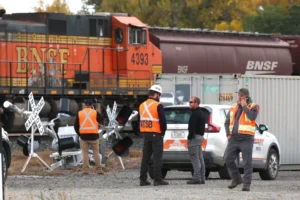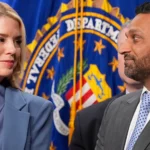FRIDAY FOCUS: Gillette Suicide Prevention Expert Shares Insights from the Frontlines
Ashley McRae addresses challenges facing Wyoming’s efforts to combat high-suicide rate
- Published In: Other News & Features
- Last Updated: Jul 28, 2023

Ashley McRae, suicide prevention specialist in Gillette, understands the challenges of those struggling with mental health. She has turned her passion for sucide prevention and training into a career. (Courtesy photo from Ashley McRae)
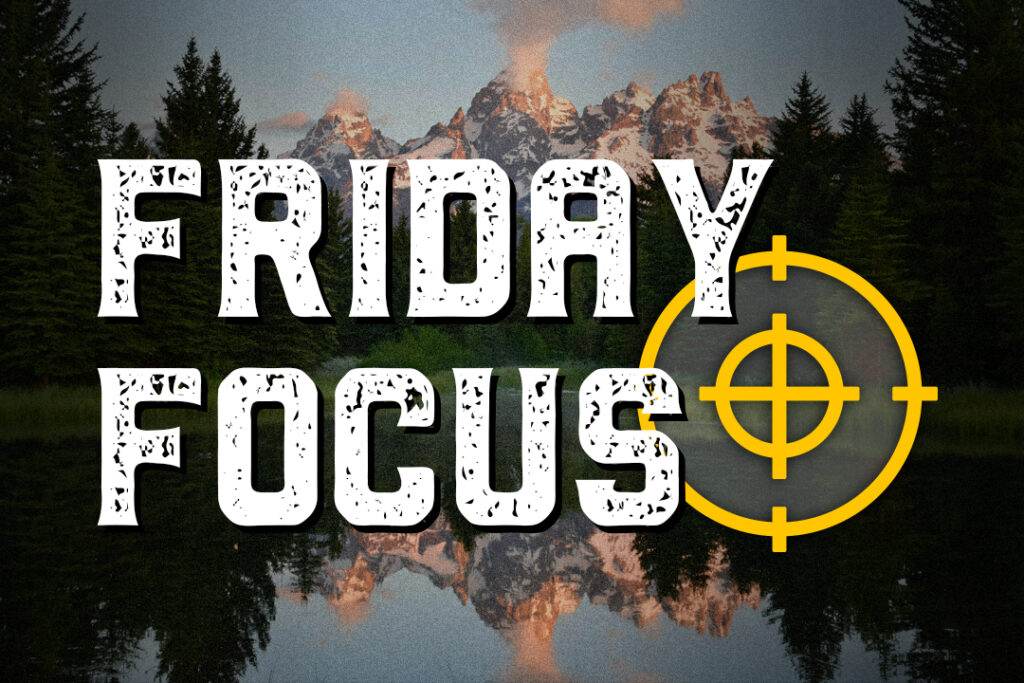
By Jennifer Kocher
Special the Wyoming Truth
Ashley McRae understands firsthand the challenges of mental health issues. Not only has she struggled with her own suicidal ideations, but she also lost her stepfather to suicide when she was 24. She decided to pursue a career in suicide prevention after her childhood friend lost her brother to suicide. By attending grief counseling meetings with her friend, McRae started to understand the myriad underlying issues surrounding mental health and suicide.
Today, the 32-year-old Gillette resident is a community prevention specialist in Campbell County, where she works with local coalitions to strengthen suicide prevention efforts and promote mental health and substance abuse initiatives. McRae also provides suicide prevention training to professionals and the community, while connecting those in need to vital resources.
“I love what I do, and most days it does not feel like a job,” McRae said. “It feels like I am out there living my passion and making a difference in the community.”
McRae has been in her position for seven years. She holds a bachelor’s degree in criminal justice from the University of Phoenix and is pursuing graduate degrees in clinical mental health, forensic and school counseling through Walden University.
The Wyoming Truth sat down with McRae to discuss the challenges and solutions to combatting suicide in a state strapped for funding and resources. What follows are excerpts from the conversation.
Wyoming ranks in the top three states in the nation for the highest suicide rates. What’s driving this?
McRae: I can’t say with certainty, because I feel like suicide is so complex and individualized. Not everyone who dies by suicide needs or wants to seek help from a mental health provider. In fact, per our trend data, the majority either have no [diagnosed] mental illness or they are already seeing a mental health provider at the time of their death. We are rural and more isolated, so that is a contributor. Access to lethal means is also huge. In Wyoming, we have more firearms than we do people, and we love our firearms and freedoms here. I would not change that for anything. However, when you have someone who is dealing with a variety of issues, and these issues start to snowball and you mix this with substance use and access to a lethal means, you get a tragic outcome. I want to be clear: firearms are not the issue. The issue is the unresolved conflict and pain that has built up or is coming all at once. But it’s important to keep both firearms and prescription drugs locked up in a safe place.
We also have a shortage of counselors and mental health professionals. This is a multilayer issue that leads to long wait times and limited access to mental health care. It is both a perception and a reality. Financial stresses are also barriers for many, including high insurance deductibles and inflation and other debts that make it hard for people to afford to seek help.
But we can’t just hire the abundance of counselors needed to fit the needs of our community. So we have to come up with creative alternatives to help.
What are some creative solutions?
McRae: [In Campbell County], we created a 24/7 mobile crisis response team [in May 2022] that is made up of victims’ advocates, law enforcement, counselors and myself. Not everyone in crisis meets the requirements to be put on a title hold [an involuntary 72-hour hold due to a mental illness if a person poses a danger to themselves or others], and it is not appropriate for everyone. However, everyone’s crisis is a crisis, and they should have the support. So if we can get services and safety plans out to those in crisis right away, they can feel supported and not so alone. We want to meet them where they are at and can go directly to their location unless they want to have a phone conversation.
We also have loss teams that go out when there is a suicide… we go directly to the person’s home and deliver a packet with resources, including grief materials, a financial workbook and an application for assistance…We also are there to listen, relay messages and help wherever we can.
In Wyoming, 96.4% of the population lives in a mental health shortage area, according to a 2021 report from the Health Resources and Services Administration. What can the legislature do to help attract professionals to the state?
McRae: Wyoming is one of the hardest states to get a mental health license in. LPC [licensed professional counselor] licensure in Wyoming requires the completion of 3,000 hours of supervision for holders of master’s degrees, with 1,200 hours of direct client contact and 100 hours of face-to-face, individual direction from an approved supervisor. In other states, such as Florida, at least 100 hours of supervision is required in no less than 100 weeks with 1,500 hours of face-to-face psychotherapy with clients and one hour of supervision every two weeks. It’s also much lower in Utah, where I thought about pursing my license due to the flexibility and requirements. We also need better data collection and need to work on what the trend data shows . . . . and stay [up to date on] the most effective evidence-based strategies.
A 2021 poll by the American Psychiatry Association indicated telehealth counseling is becoming increasingly popular, with nearly six out of 10 respondents saying they would be likely to use telehealth for their mental health needs. Is this a viable alternative to in-person counseling in Wyoming?
McRae: I struggle with this question, personally. I think telehealth offers a great alternative to face-to-face, especially with rural areas and wait times. But in a crisis situation, my personal opinion is it is not ideal. While doing telehealth, it can be difficult to view body language, such as fidgeting, movements with your hands, inability to sit, etc. A person’s body language can tell you more than their verbal language.
This week, President Biden proposed new rules that would require insurance companies to improve coverage for mental health treatments. Would this benefit Wyoming?
McRae: I am not sure, because Wyoming already has a law were insurance companies have to treat mental illness the same way they treat physical illness [Wyoming Mental Health Parity, Stat. § 26-20-701]. I would have to read the rule and see exactly what they mean by “providing better mental health coverage.”
Side note: I also think we need to get past the idea that people who kill themselves are people with mental illness and people who need access to care. Yes, that is true in some cases, but what about the cases where it is impulsive? There is a study out that shows over 50% of people who attempted suicide said that from the time the thought entered their mind to the time they attempted it was 10 minutes or less.
What can people do if they sense someone has suicidal ideations?
McRae: Suicide is so hard. It is hard because mental health or mental illness is not something you can see on the outside. Yes, there are signs, and if you know what to look for, then sometimes you can spot them. But it is hard to identify signs sometimes, because they could be something else. It is also extremely uncomfortable to talk about and ask about suicide. I think that people do not want to be nosey or judgmental. Also, there is a fear of “What if this person says ‘Yes,’ what do I do?” and panic sets in. That is a legitimate fear… I would just challenge people to trust their gut. If they feel like something is off or if someone is thinking about suicide, then ask. If they can’t, that is OK, but find someone who can.
If a counselor is not available, it is OK to call or text the 988 crisis line, utilize the crisis team or call a friend, family member or faith leader.




